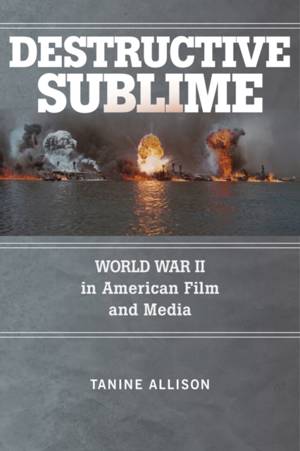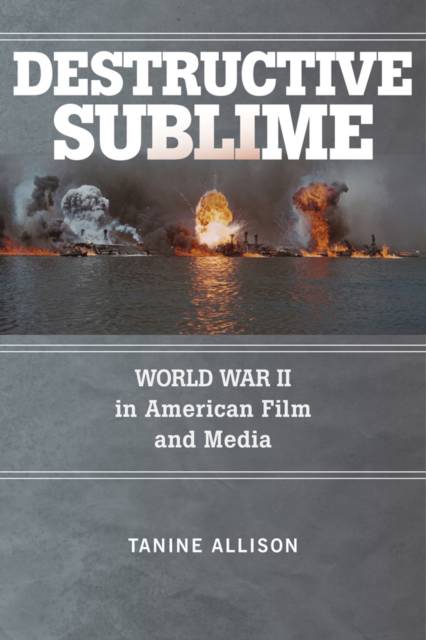
Onze Vivlio e-readers ondervinden momenteel synchronisatieproblemen. We doen er alles aan om dit zo snel mogelijk op te lossen. Onze excuses voor het ongemak!
- Afhalen na 1 uur in een winkel met voorraad
- Gratis thuislevering in België vanaf € 30
- Ruim aanbod met 7 miljoen producten
Onze Vivlio e-readers ondervinden momenteel synchronisatieproblemen. We doen er alles aan om dit zo snel mogelijk op te lossen. Onze excuses voor het ongemak!
- Afhalen na 1 uur in een winkel met voorraad
- Gratis thuislevering in België vanaf € 30
- Ruim aanbod met 7 miljoen producten
Zoeken
€ 173,45
+ 346 punten
Uitvoering
Omschrijving
The American popular imagination has long portrayed World War II as the "good war," fought by the "greatest generation" for the sake of freedom and democracy. Yet, combat films and other war media complicate this conventional view by indulging in explosive displays of spectacular violence. Combat sequences, Tanine Allison argues, construct a counter-narrative of World War II by reminding viewers of the war's harsh brutality. Destructive Sublime traces a new aesthetic history of the World War II combat genre by looking back at it through the lens of contemporary video games like Call of Duty. Allison locates some of video games' glorification of violence, disruptive audiovisual style, and bodily sensation in even the most canonical and seemingly conservative films of the genre. In a series of case studies spanning more than seventy years--from wartime documentaries like The Battle of San Pietro to fictional reenactments like The Longest Day and Saving Private Ryan to combat video games like Medal of Honor--this book reveals how the genre's aesthetic forms reflect (and influence) how American culture conceives of war, nation, and representation itself.
Specificaties
Betrokkenen
- Auteur(s):
- Uitgeverij:
Inhoud
- Aantal bladzijden:
- 250
- Taal:
- Engels
- Reeks:
Eigenschappen
- Productcode (EAN):
- 9780813597492
- Verschijningsdatum:
- 25/06/2018
- Uitvoering:
- Hardcover
- Formaat:
- Genaaid
- Afmetingen:
- 196 mm x 241 mm
- Gewicht:
- 489 g

Alleen bij Standaard Boekhandel
+ 346 punten op je klantenkaart van Standaard Boekhandel
Beoordelingen
We publiceren alleen reviews die voldoen aan de voorwaarden voor reviews. Bekijk onze voorwaarden voor reviews.











